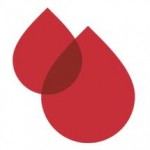
Eliquis, from Pfizer and Bristol-Myers Squibb, was developed as an alternative to warfarin, which for decades has been the standard treatment for blood clot prevention.
But according to FiercePharma, warfarin “comes with a host of dosage-tweaking rules, plus interactions with alcohol and food, so it is difficult for patients to take and doctors to manage.”
And some of the other warfarin alternatives to hit the market in recent years have generated problems of their own. For example, FiercePharma notes that many doctors have become wary of Boehringer Ingelheim’s Pradaxa because of concerns about bleeding.
Pradaxa was the subject of 3,781 adverse effect reports to the FDA in 2011, including 542 deaths, in part because no antidote exists for Pradaxa-related bleeding emergencies.
The U.K.’s National Institute for Health and Clinical Excellence, a cost effectiveness watchdog agency, recently recommended Eliquis for stroke prevention on the basis of its being “more clinically effective than warfarin” at reducing stroke and systemic embolism. And European Union health regulators recently approved it for that use, FiercePharma reports.
Although Eliquis was already approved to prevent and treat venous thromboembolism, stroke-prevention is a much larger and potentially lucrative market.
You should consult with a doctor if you have any ongoing symptoms or health concerns, and before making any changes in medication. You should also consult with a lawyer if you have injuries connected with Pradaxa.
See the story here:
https://www.fiercepharma.com/story/clot-fighter-eliquis-wins-speedy-new-backing-nice/2013-01-23
